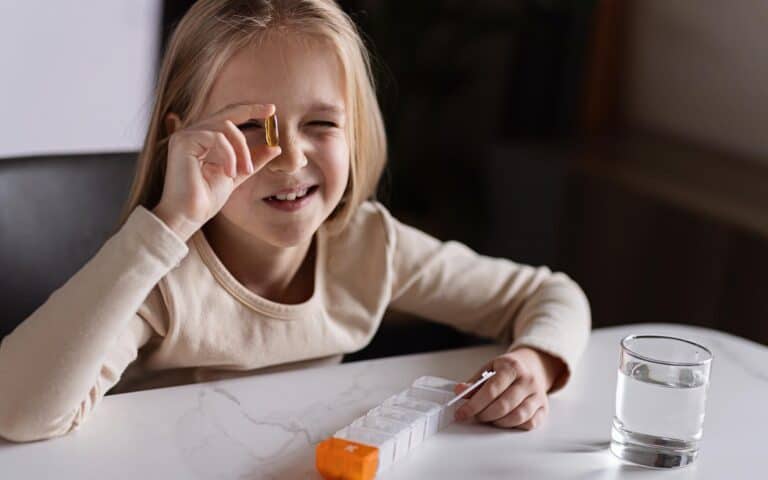Understanding ADHD
Children with ADHD may struggle to pay attention, control impulsive behaviors, or be overly active. These symptoms significantly impact their daily lives, including their ability to learn and interact with others.
For many parents and educators, recognizing ADHD symptoms early can be the key to providing the support and interventions needed for a child’s success. Symptoms can include everything from daydreaming frequently, losing things, difficulty staying on task, talking excessively, and making impulsive decisions to having trouble socializing with peers.
The Role of Medication in ADHD Management
Medication often plays a crucial role in managing ADHD symptoms. While there are various types of children’s ADHD medications available, stimulant medication is commonly prescribed. These medications work by increasing levels of neurotransmitters in the brain, such as dopamine and norepinephrine, which are essential for attention, motivation, and movement.
However, it is important to recognize that while children’s ADHD medications can be highly effective in reducing symptoms, they do not cure ADHD. They act as a topical solution, meaning that once the medication wears off, the symptoms will return. It’s vital for parents and healthcare providers to understand this limitation and consider medication as part of a broader treatment approach that includes behavioral therapy, parent training, and more.
Side Effects of Children's ADHD Medication
While children’s ADHD medications can be beneficial, they may also cause an array of side effects, such as:
- Decreased appetite
- Weight loss
- Sleep prob
- Increased heart rate and blood pressure
- Increased anxiety or aggressiveness
Parents should maintain open communication with their child’s care team to ensure any concerns with medication side effects are promptly addressed.
Alternative, Medication-Free Treatments and Therapies for ADHD
Exploring medication-free treatments and therapies for ADHD is crucial for a holistic approach to managing the condition. Advances in modern medicine, particularly in brain imaging, allow us to understand the neuroanatomy of ADHD deeply. This enables the development of targeted treatment plans that address more than just the symptoms of ADHD.
Using Brain Imaging to Address the Root Causes of ADHD
Brain imaging technologies offer unparalleled insights into ADHD’s neurobiological underpinnings. By examining neural pathways and activity levels in different brain regions, healthcare providers can pinpoint the root causes of ADHD. This comprehensive understanding is critical for developing personalized treatment plans that go beyond symptom management.
Focused Treatment for Brain Development
Targeted treatment strategies for ADHD focus on stimulating the underdeveloped areas of the brain responsible for attention, impulse control, and executive function. By doing so, these treatments support the brain’s natural development process, helping to align it more closely with that of peers without ADHD.
This individualized approach minimizes the need for medication and its associated side effects. However, it requires a deep understanding of each child’s unique neuroanatomy and a commitment to a tailored treatment plan.
Ultimately, focused treatment for brain development offers the promise of long-term improvement in ADHD symptoms, enabling children to develop the skills they need to thrive both academically and socially.
A Multitude of Treatment Options
There are many medication-free treatment options for children with ADHD, including:
- Behavioral therapy and parent training to improve behavior management skills.
- Psychotherapy for emotional support and understanding ADHD.
- Neurofeedback and biofeedback to teach brain self-regulation skills.
- Executive function training to improve planning, organization, and impulse control.
- Vision therapy to enhance sensory processing and integration.
Overcome ADHD With Abbey Neuropsychology Clinic
For over 15 years, Abbey Neuropsychology Clinic has been at the forefront of providing comprehensive medication-free treatment for ADHD. Utilizing advanced imaging techniques and neuropsychological assessments, we craft individualized treatment plans that target the root causes of ADHD.
Our approach integrates the latest in behavioral therapy, educational support, and innovative therapies designed to empower children with ADHD. By equipping them with the necessary skills and strategies, we help transform their lives, enabling them to manage their condition effectively and achieve their full potential.
Reach out to our team today to learn more about our medication-free, evidence-based approach to ADHD management.






